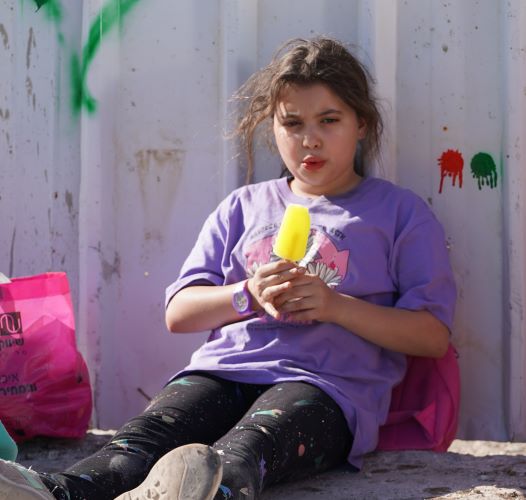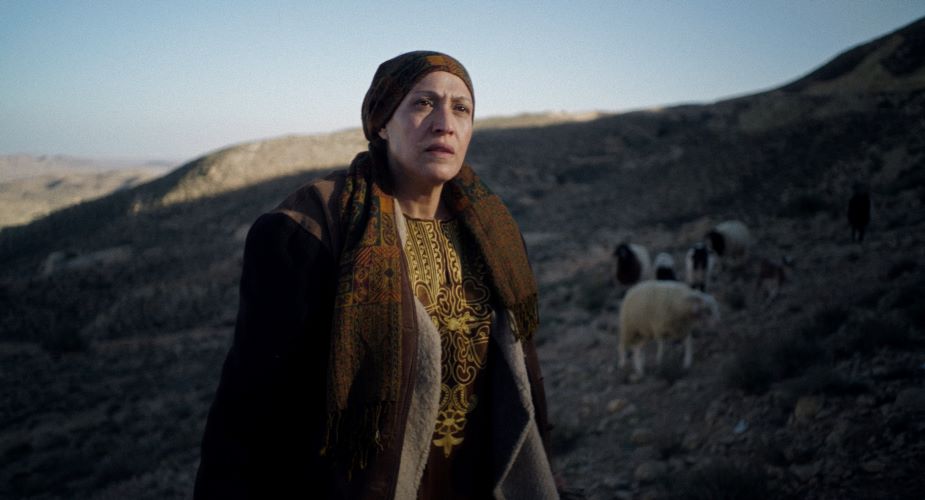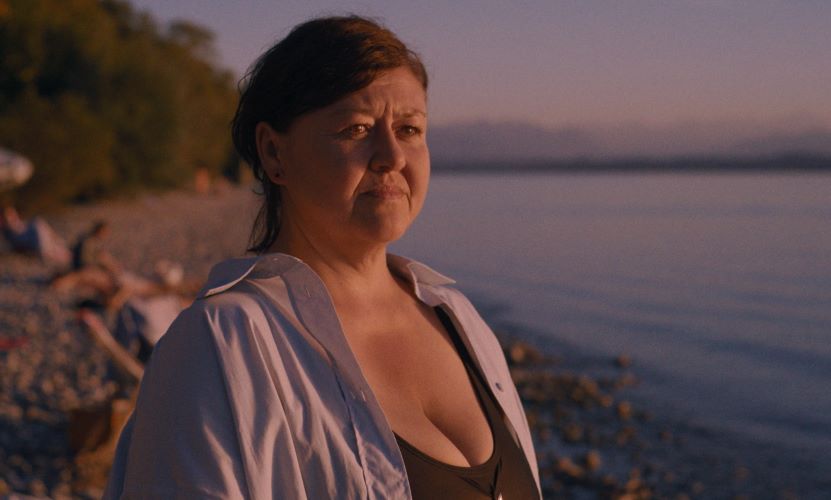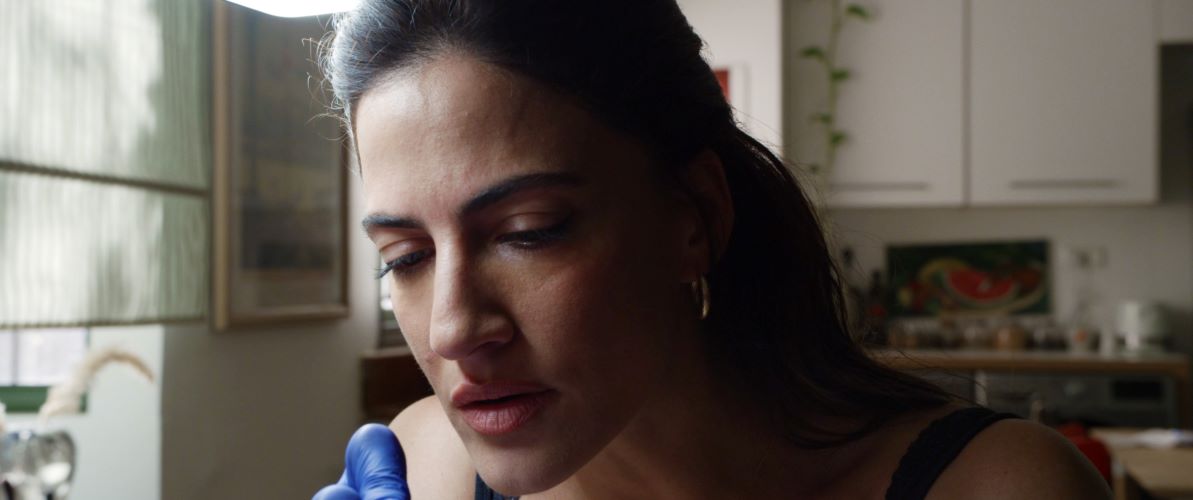There is an amazing array of films to be shown at the Tel Aviv International Student Film Festival (TISFF), which will take place from August 20 – 27, 2025. The full program may be found on the festival website. Here are a few that caught my eye:
Final Chord

In an expressive color pallete, with evocative imagery and soundscape, Ruth Blory and Itai Osterman, from the Haifa University School of Film and Design, tell the story of friendship, love, and unfathomable loss. In an animated film of 6 minutes, with a very precise and eloquent visual language, they tell the shock and grief of an entire country. The story is simple: Lily and Keren are friends. They hang out, talk, laugh, listen to music and dance. Keren went to the Nova music festival, while Lily chose to stay at home. The film is dedicated to the memory of PINK, Inbar Haiman. Trigger warning: the film includes a recorded alert.
Sila

A young girl in a pink backpack approaches an intersection on foot. She’s not on her way home or to a friend’s house. She’s going to work. Sila, written and directed by Bissan Tibi from the Steve Tisch School of Film & Television, depicts the grim reality of young Palestinian children living in abject poverty who are sent out to work the streets, approaching cars at intersections and cleaning windshields or selling candy or gum, hoping to awaken the charitable instincts of the drivers. Yet Tibi’s film is full of life, and the sense of childhood, with excellent performances from its young actors. Mariam Mora depicts Sila with an appealing warmth, and complexity. Sila accepts her situation – because she knows she has no alternative – and tries to make the best of it. She has acquired skills and knowledge that a child her age should not need to know but are crucial to her survival. When the drivers ask her name or age, she tells them something, anything but the truth. Perhaps she is 12, perhaps 13, perhaps younger. She’s still young enough to care what flavor of popsicle she can afford to buy.
Into Sila’s intersection, where she sells gum, comes Yosef (Mohamad Ghazawi) who is cleaning windshields. Sila wants to protect her territory, and the ensuing interaction between the two is the focus of the narrative. Ghazawi delivered a powerful and moving performance in the feature film The Sea, directed by Shai Carmeli-Pollak, and produced by Baher Agbaria. Fascinating and surprising, the action and relationship unfolds, grounded by strong performances from the two young actors.
Walud

A lone figure walks in the arid landscape of the rural Syrian desert – Amuna, her worn expression reveals the hardship of her existence, as she carries two buckets of milk to the small, stone home she shares with her husband Aziz, where they herd sheep. Written and directed by Daood Alabdulaa and Louise Zenker, from the University of Television and Film Munich, Walud is set in 2014. For Amuna, it’s a life of loneliness and isolation, in a patriarchal culture. Salha Nasraoui brings depth to her portrayal of Amuna, expressing volumes in her gaze. Each scene reveals aspects of Amuna’s character, and hints of her past. Despite the confines of her role in society, when Aziz, an ISIS fighter, admonishes her for not wearing a burqa, she does not hesitate to challenge him, saying that the Brotherhood “have no business here.” But when Aziz brings home a young, European, second wife, it will directly impact Amuna’s life. Amuna’s response, and its development, make this a powerful and compelling film.
Balkan Baby

Poetic and evocative, the film opens with a woman’s feet walking carefully over the pebbles and stones on the lakeshore at night. It’s an apt visual metaphor for the film’s protagonist, Martina, a woman originally from the Balkans, living essentially in exile in Germany. Just as carefully as she walks over the stones, she lives her new life in Germany, trying to fit in. Directed by Boris Gavrilović with a screenplay by Boris Gavrilović, Laura Lybaschenko, Ecem Calisir, from the University of Television and Film, Munich, the film finds Martina on vacation in Starnberg, by the lake. Ružica Hajdavi imbues Martina with the precise mix of people-pleasing and discomfort, as she smiles and lets the hotel receptionist know that it’s perfectly fine that he can’t spell her name. She is determined to fit in. Travelling alone, she’s open and friendly, eager to connect with other travellers, Germans, of course. But her encounter with Dunja, a young and uninhibited Bosnian woman (Senita Huskić) pierces Martina’s elaborately constructed defences.
French

The darker side of the intimate relationship between a manicurist and her client is explored in this film written and directed by Dylan Joseph. Two very strong actors portray Sari, the manicurist, and Alona, the client – respectively, Rona-Lee Shimon and Hadas Yaron. The setting is intimate, Sari sees clients in her home, and, as anyone familiar with manicures and their mythology, confidences are shared, and there is often a therapeutic element to the relationship. Until something goes wrong. Sari suspects that while she was away on vacation, Alona went to a rival salon. Alona indignantly denies this, and it’s a lot of fun to see these two go head to head.





